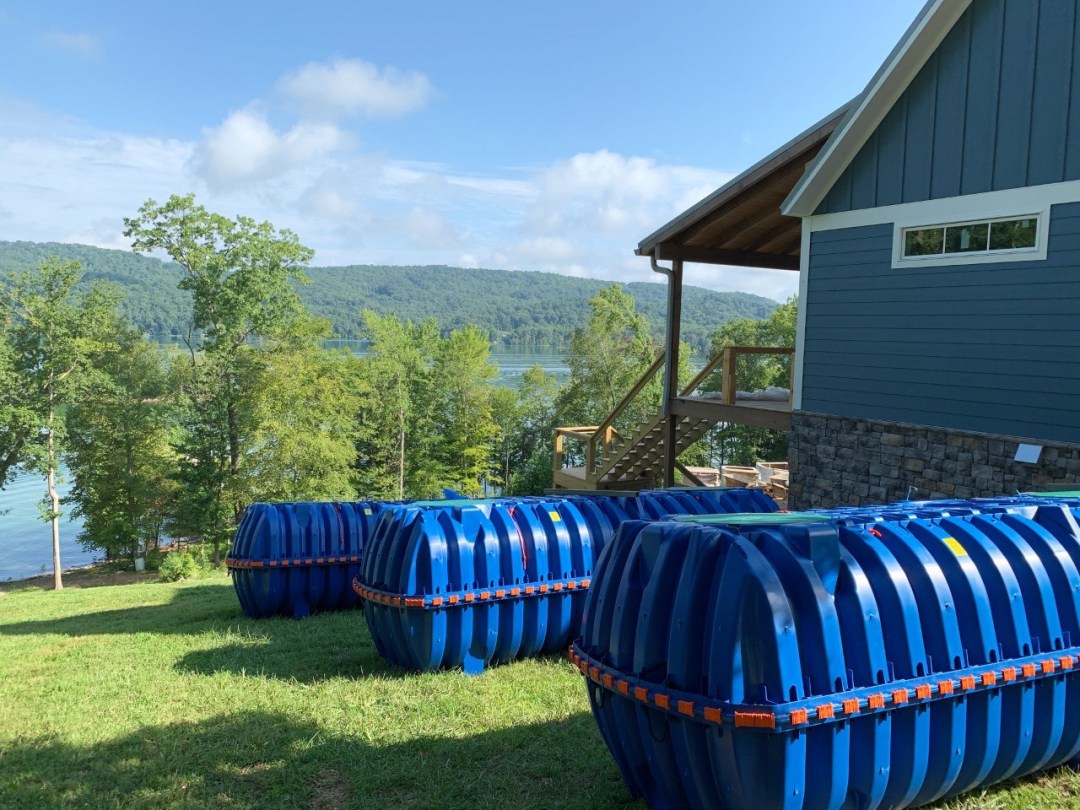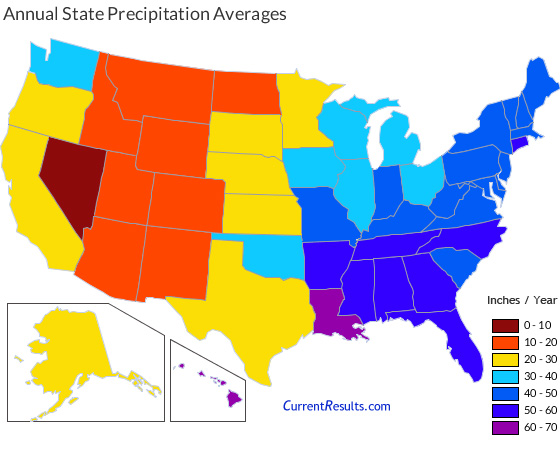What Happens if our Rainwater Runs Out? ANSWERED

When contemplating switching to a rainwater harvesting system, one of the biggest concerns is running out of water. Our goal, as it should be for any rainwater harvesting system, is for clients to never notice that they are off the grid. Still, the question likely persists in the back of many people's minds when deciding whether or not to install a rainwater harvesting system. So, what is the likelihood of your tank running dry, and what do you do if it does?
Our Criteria
Before we answer that question, you should know more about the criteria we have for our systems. We want everyone who uses our rainwater harvesting system to live like an average American on city water, except with higher quality water.
High-Quality Water
Unlike other water sources, rainwater is some of the purest you can find. Not only does it come in contact with fewer contaminants, but it also doesn't need questionable chemicals to make it drinkable. In contrast, city water is generally pulled from the rivers or lakes, and pumped full of additives, while well water can potentially have groundwater contamination. Additionally, rainwater is naturally soft, so there is no worry about the damage those minerals can do to your skin and appliances.
There is still a chance that rainwater comes in contact with a few contaminants between the sky and your tank. For that possibility, our tanks have a multi-stage purification system, so by the time the water reaches your house, it is pure H20.
Good Pressure
Water pressure from a rainwater harvesting system is often better than traditional water for two reasons. First, the motor that pumps water to the house is much closer, so water doesn't lose pressure as it travels to your pipes. Second, you have control over the amount of water flow to your house so that you can adjust the pressure to your liking.
Sufficient Water Availability
Of course, the most essential factor for living like any other American on a traditional water source is always having water available. Although it is unlikely that you will ever run out of water, multiple contingencies are in place to ensure that you will always have water for your home.
What Are the Backup Plans?
So, the real question is, what happens if your tank runs out of water? There are two straightforward solutions in this unlikely scenario.
Fill Port
Every one of our rainwater harvesting systems comes with a fill port, making it easy to access the tank and add water if needed. In most areas, the fire department will gladly fill your tanks for a small fee.
Automatic Crossover
Another failsafe that gives peace of mind is the automatic crossover function. If your tanks get too low, the system automatically switches to city or well water until your tanks refill to a suitable point. This feature is especially nice because it happens automatically and seamlessly, so it doesn't inconvenience the homeowner.
How Do You Know That I'll Get Enough Water?
You are probably wondering how we can be so confident that your rainwater won't run out. We leave nothing up to chance, and we use a combination of data and mathematics to have a solid idea of how much water you can expect throughout the year.
Your Local Rainfall Data
We don't just look at recent rainfall data; we look at the rainfall data for your area over the past 100 years. We also consider that rainfall totals vary throughout the state, so we get data from the National Centers for Environmental Information to get the most accurate rainfall totals for your area.

Storage Calculation
Knowing the right amount of water storage you need can be the most challenging part of the whole process. If your tanks aren't big enough, you may not get enough water for your needs, but if they are too big, you paid for extra storage you don't need and will likely never be filled. We want to find that storage "sweet spot" that is just right, but it is up to the homeowner to decide if they want to err on the side of being too big or too small. The good news is that more storage is relatively easy to add later, especially if there is space for an above-ground tank.
Roof Footprint
Knowing your roof footprint is significant when understanding how much water you can collect throughout the year. This isn't necessarily the actual square footage of the roof but a measurement of how big the roof is from a top-down view. Understanding this key metric will let us know how much rain your roof can collect.
Understanding Demand
Perhaps the most key information we can collect is understanding how much water you use in a year. Does someone in your house tend to take extra-long showers? Do you have a garden that requires extra watering? Do you have a 100-gallon fish tank that requires weekly water changes? Every household uses its water differently, and we will need a ballpark idea to ensure we are getting you the storage you need and ensuring sufficient rainfall in your area. The best way to do this is by accessing as many water bills as possible and averaging the number of gallons your household uses each month.
But Aren't Traditional Sources of Water Still Safer?
Regarding city and well water, safety is in the eye of the beholder. You may not have the idea of running out of water in the back of your mind, but these water sources are filled with all kinds of additives that can potentially harm your family. Furthermore, these traditional water sources are not as guaranteed as many people believe. Wells run out all the time, and the city can arbitrarily shut off your water if they lose your check. These are two nightmare scenarios you would never have to deal with if you had a rainwater harvesting system.
Clean Water When You Need It
There are so many benefits of rainwater harvesting that the minuscule risk of ever running out is worth it. Using 100-year historical rainfall data for every system we design and install, we ensure high-quality water, good pressure, and sufficient water availability. If you're interested, schedule an appointment with a rainwater specialist today!
Ready to Take Control of Your Water Supply?
Don’t wait for water shortages or unreliable sources to disrupt your life. With our Rainwater Harvesting systems, you can enjoy a sustainable, reliable, and completely self-sufficient water solution tailored to your home’s needs.

